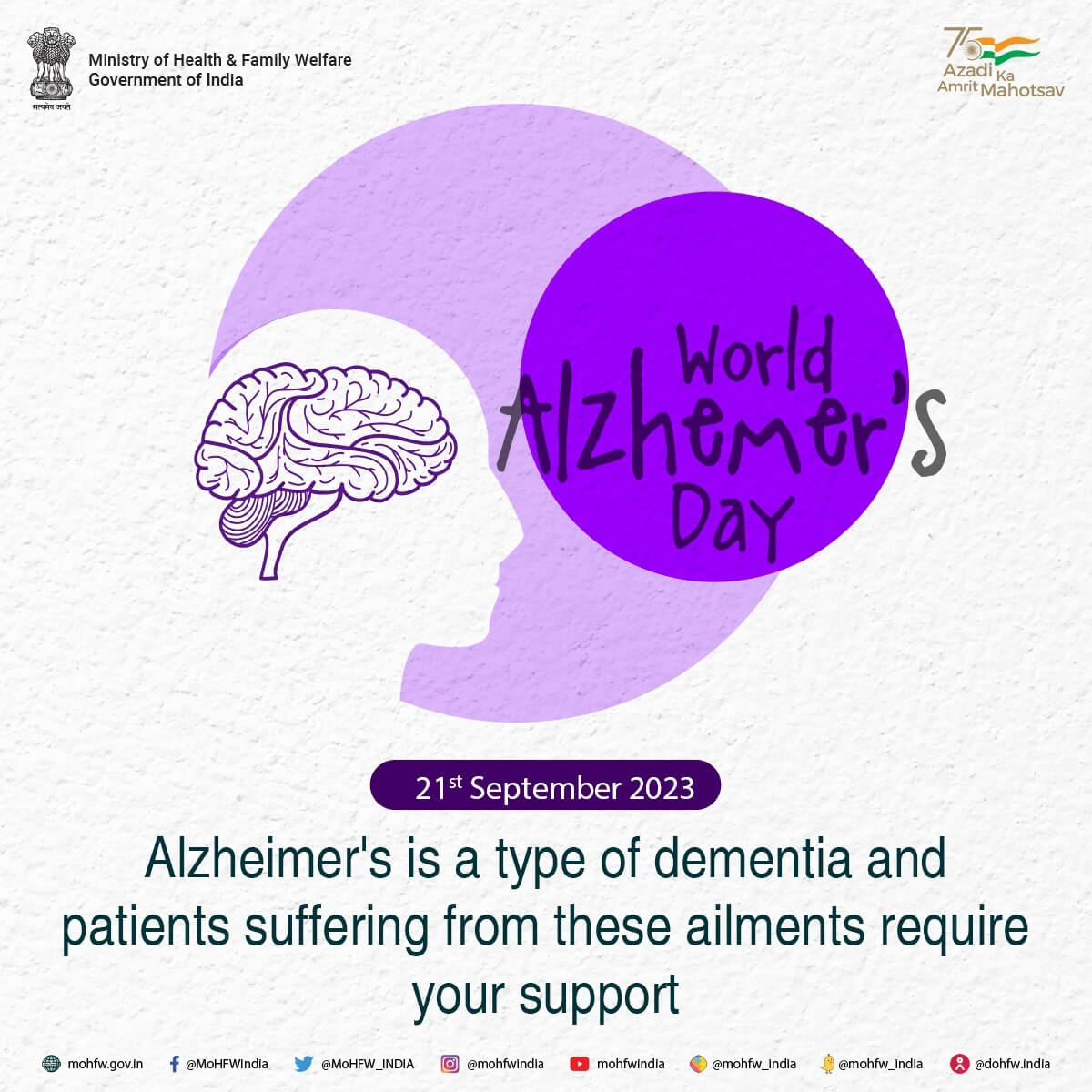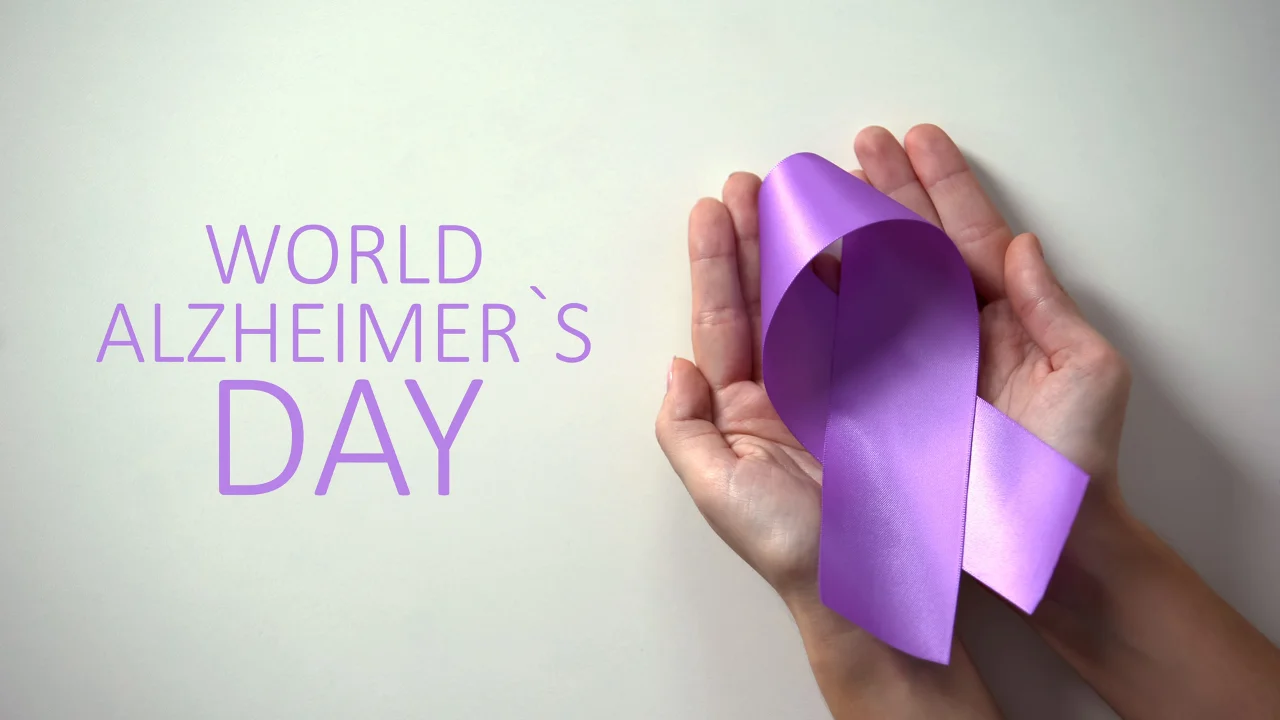World Alzheimer’s Day 2024

World Alzheimer’s Day is observed annually on September 21st, to raise global awareness about Alzheimer’s disease and diminish the associated stigma related to dementia in all its forms. Alzheimer’s disease, which constitutes the majority of dementia cases at 60-70%, is a progressive brain ailment that progressively impairs memory, cognitive abilities, and behavior, ultimately affecting a person’s daily functioning.
A primary goal of this day is to combat the stigma associated with Alzheimer’s disease.
World Alzheimer’s Day Theme 2024
As of today, the theme for World Alzheimer’s Day 2024 has not been announced yet.
In 2023, the theme for Alzheimer’s Day was ‘Never Too Early, Never Too Late’.
What is Alzheimer’s
Alzheimer’s disease is a condition characterized by the progressive shrinkage of the brain and the eventual death of brain cells. This leads to symptoms such as memory loss, cognitive decline, and a decline in social skills. It is one of the most prevalent causes of dementia and can significantly impact an individual’s ability to function.
This neurological disorder occurs when abnormal proteins known as beta-amyloids accumulate in brain cells, causing them to shrink and eventually perish. Individuals with Alzheimer’s disease may experience symptoms like memory loss, difficulty in thinking, problems with reasoning, changes in behavior, and depression.
The early signs of Alzheimer’s can be subtle and often go unnoticed, which is why the disease is frequently diagnosed in its later stages. Alzheimer’s disease is a significant contributor to dementia, and it is a progressive brain disorder, meaning it worsens over time. However, the rate of progression may vary from person to person.
Prevalence of Alzheimer’s in India
According to the Global Burden of Disease Study (GBDS) in 2019, it is projected that between 2019 and 2050, the number of dementia cases, which includes Alzheimer’s disease, will experience a significant increase of 166%, affecting the lives of nearly 1.53 billion people worldwide. In India, these figures could surpass 110 million cases, as per Indian estimates.
A study conducted by the CSIR-National Institute of Science Communication and Policy Research (CSIR-NIScPR), which provides one of the most comprehensive accounts available on the expected prevalence and trends of various neurological disorders in the country, revealed that in the approximately three decades between 1990 and 2019, the burden of non-communicable neurological disorders, including Alzheimer’s disease, more than doubled in India. In 2019, India had almost 3.7 million active cases of Alzheimer’s disease and other forms of dementia, with a prevalence rate of 4.3%.
History of World Alzheimer’s Day
World Alzheimer’s Day was established on September 21, 1994, in Edinburgh, to commemorate the tenth anniversary of Alzheimer’s Disease International (ADI). ADI, founded in 1984, is an organization committed to assisting and offering support to individuals affected by Alzheimer’s disease and their families.
Significance of World Alzheimers Day
World Alzheimer’s Day holds significant importance as it seeks to raise awareness about this neurological disorder and diminish the associated stigma. It provides an opportunity to educate the public about early signs, risk factors, and available treatments. By enhancing our understanding of Alzheimer’s, we can ensure early diagnosis and provide individuals with the necessary care and support.
With over 50 million people worldwide living with dementia and a growing number being diagnosed each year, it is crucial to expand public awareness and assist those affected. One of the primary objectives of this day is to advocate for increased investment in research.
Despite its widespread impact, Alzheimer’s disease still lacks a cure. Therefore, it is essential to allocate resources to research to gain a deeper understanding of the disease and develop effective treatments. This day serves as a call to action for governments, research institutions, and philanthropic organizations to prioritize funding for Alzheimer’s research and improve the lives of those affected by the disease.
21st September 2024 Special Day
On September 21, 2024, we globally observe World Alzheimer’s Day, dedicating our efforts to raise awareness about Alzheimer’s disease and combat the stigma associated with various forms of dementia. This special day prompts us to unite in understanding, supporting affected individuals, and advancing research to enhance the quality of life for those facing Alzheimer’s challenges. Let’s work together to foster a compassionate world where knowledge and empathy prevail in the fight against this pervasive condition.
- Weekly Current Affairs 2025 PDF For Bank, SSC, UPSC Exams
- Unsung Heroes of India: 10 Unknown Freedom Fighters You Should Know
- 26 December Current Affairs 2023 in English
- Daily Current Affairs 2025, Check Today’s Current Affairs
- April Month Current Affairs 2024, Download PDF
- June Month Current Affairs 2024, Download PDF

Hello, I’m Aditi, the creative mind behind the words at Oliveboard. As a content writer specializing in state-level exams, my mission is to unravel the complexities of exam information, ensuring aspiring candidates find clarity and confidence. Having walked the path of an aspirant myself, I bring a unique perspective to my work, crafting accessible content on Exam Notifications, Admit Cards, and Results.
At Oliveboard, I play a crucial role in empowering candidates throughout their exam journey. My dedication lies in making the seemingly daunting process not only understandable but also rewarding. Join me as I break down barriers in exam preparation, providing timely insights and valuable resources. Let’s navigate the path to success together, one well-informed step at a time.






